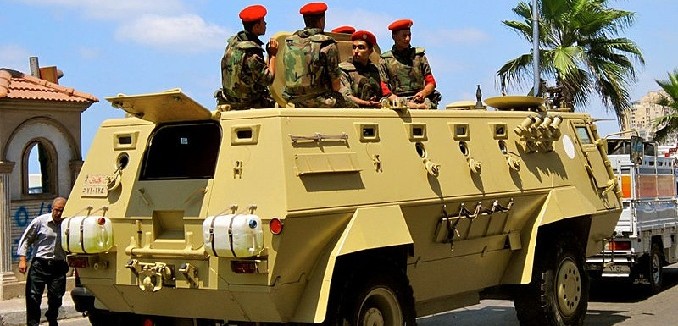“There was no other way but for the army to intervene,” says Danny Yatom a former general in Israel Defense Forces who headed the Mossad, Israel’s foreign espionage agency, in the late 1990’s. “Egypt was and still is on the verge of a civil war and bloodshed. Only the army can prevent it.”
Yatom and other Israeli experts think that the Egyptian army is the most – and maybe only – credible institution left in the country.
“Without military intervention,” added Yatom, “the two camps, the opposition and the Muslim Brotherhood-led government of President Mohammed Morsi, cannot reconcile with each other and find a common ground. It is now probably too late.”
The Egyptian army – its official name is the Egyptian Armed Forces (EAF) – is a professional force. It has nearly half a million soldiers and officers, making it the largest force in the Arab world and Africa. It is also a relatively modern force, built on mainly American weaponry and technology. The military’s top echelon received training and educations in the United States and the United Kingdom, with the result being pockets of Western-oriented officers. Some services, including and especially Egypt’s air force, field advanced equipment.
It is a proud force with a long military tradition, and it counts relative achievements such as Egypt’s 1973 war against Israel alongside defeats to the Jewish state in 1948 and to a French-British Israeli coalition in 1956. The army has also played major roles in some United Nations peace keeping missions deployed after civil wars and crises.
If the army takes formal control of Egypt, it would mark the third time in the country’s modern history. In July 1952 young officers, traumatized by the defeat Egypt sustained during the country’s 1948 war against newly-independent Israel, rebelled against the monarchy and toppled King Farouk. The military, with the elderly General Mohammad Nagib as its figurehead, ruled for a year and half until Colonel Abdul Nasser, the real force behind the revolt, officially took the reins of power. Nasser became president and changed Egypt into a socialist republic.
The military interfered in the political sphere again in 2011, when it forced then-President Hosni Mubarak to step down despite the Mubarak’s status as a former commander of the air force.
But the Egyptian army is not just a military force. It is also an economic empire. It owns factories, food stores, agricultural farms, and it has even built cities for its members and veterans.
“It is clear that any military intervention is not only a genuine effort to save Egypt from collapse but also to preserve the military’s human and economic interests,” explains Lt. Colonel Udi Levy, an Israeli military intelligence specialist who focuses on Egyptian affairs among other issues.
The leader of the Egyptian Armed Forces is General Abdul Fatah Khalil al-Sisi. The 59 year old is Commander-in-Chief of the Egyptian Armed Forces and held the position of Minister of Defense in the Morsi cabinet. He is a 1992 graduate of the the General Command and Staff Course held in the U.K.’s Joint Command and Staff College, and a 2006 graduate of the U.S.’s Army War College.
“He is a professional soldier,” says an Israeli security official who has known him, “He is a real Egyptian patriot.”
The military has been explicit that it has no intention of holding onto power, and is instead responding to overwhelming public demands for the removal of Morsi from office. The consensus of experts appears to be that the situation will stabilize, and that once it does the army will hand over authority to a civil government and call for new elections.
[Photo: Gigi Ibrahim / Wiki Commons]




